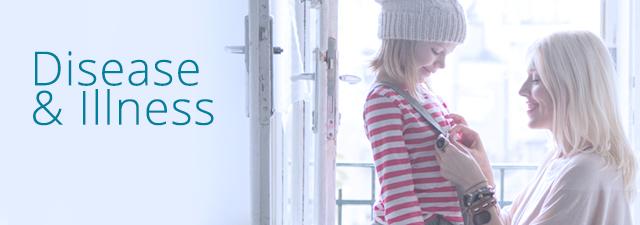Algoma Public Health
Chicken Pox
What is it?
- A very common infection in childhood caused by the varicella virus which usually causes mild illness.
- It can be severe or life threatening to new-borns or to people with weakened immune systems, or pregnant women.
- Most adults have already had chicken pox and will not get it again.
- Varicella vaccine is available for free for all children in Ontario.
- Varicella vaccine is recommended for all persons who have not had chicken pox or received 2 doses of vaccines against varicella virus.
Related Documents
Contact Us!
Sault Ste. Marie: 705-942-4646
Blind River: 705-356-2551
Elliot Lake: 705-848-2314
Wawa: 705-856-7208
What are the symptoms?
- Begins with a slight fever followed by a very itchy rash that can spread over the entire body.
- Small red spots turn into fluid-filled blisters (vesicles).
- Blisters break and form a crust after four or five days.
- Crust falls away between the ninth and thirteenth day.
- Itching is often severe at this stage.
- May also have headaches, general fatigue, runny nose, and other respiratory symptoms.
How quickly do symptoms develop?
- Within 2 to 3 weeks after coming in contact with the illness.
How is it spread?
-
Spreads easily from person to person through the air (coughing/sneezing) and direct contact with fluid from the blisters or respiratory secretions.
-
A pregnant woman with chickenpox can pass the virus to her baby before and after birth.
How long is it contagious?
- Individuals with chickenpox can spread the infection 5 days before rash onset and continue until all lesions are crusted (usually about 5 days after rash onset); however, studies have shown that individuals are most infectious the day before the rash breaks out and on day one of the rash. Contagiousness may be prolonged in persons with altered immunity.
- The Canadian Paediatric Society states that a child with a mild illness without fever should be allowed to return to school or childcare as soon as they are well enough to participate normally in all activities, regardless of a rash. (Mild chickenpox is defined as having a low fever for a short period and only a little rash (less than 30 spots). Children with chickenpox who have a fever and/or the ongoing development of many new rash spots are not well and should not be at school or at daycare.
- Individuals with chickenpox should avoid contact with pregnant women, newborns, and persons with weakened immune systems (e.g. cancer, HIV).
How is it treated?
- Treatment is not recommended for healthy children.
- Do not give Aspirin to children as this increases the risk for Reye’s Syndrome
- Antiviral drugs should be considered in the immunocompromised person.
What can you do?
- Dress in light, loose clothing. Being overheated will increase itchiness.
- Use calamine lotion, or take a cool bath with added baking soda to relieve itching
- Keep fingernails short to prevent skin infections or scarring from scratching.
- For information regarding medications to control itching, consult your pharmacy.
This information should not be used as a substitute for the medical care and advice of your physician. There may be variations in treatment that your physician may recommend based on individual facts and circumstance.
Date of Creation: June 1, 2015
Last Modified: Feb 25, 2015










